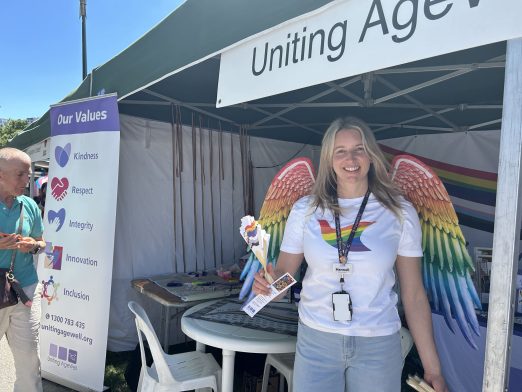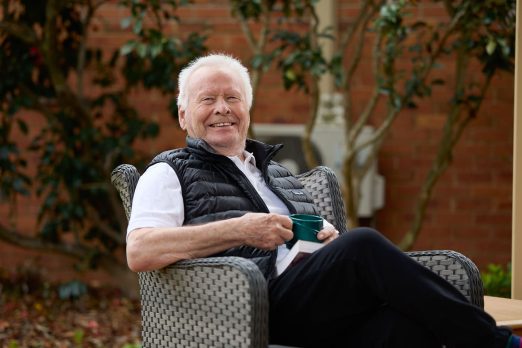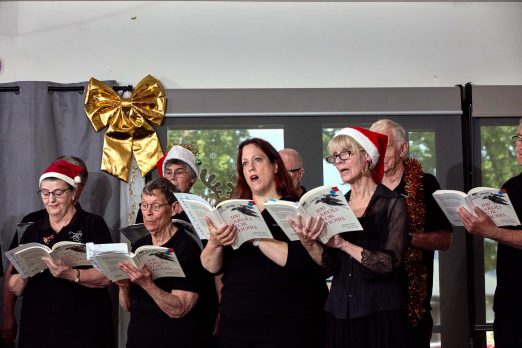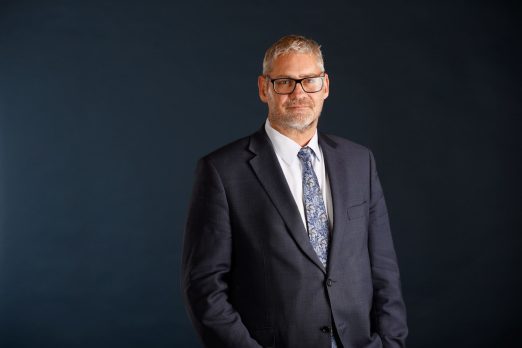News
Milestone achievement in palliative care

Uniting AgeWell is one of those taking the lead in talking about something that all of us face. Death.
And palliative and end-of-life care is one of those hard topics that we are trying to demystify and normalise.
Last month marked a proud moment and the culmination of an incredible body of work by Uniting AgeWell with the End of Life Decisions in Aged Care Project (ELDAC).
Uniting AgeWell Northern Tasmania Home Care was one of 107 successful applicants for an ELDAC Linkages Program grant in 2022, which has been supported by the Government since 2016.
Over the last year, Uniting AgeWell Manager Home Care Programs Tasmania Ann Bingham and Registered Nurse Gard Saxon, have worked tirelessly with ELDAC Project Coordinator Diana Harrison from the Queensland University of Technology (who administers the grant on the Government’s behalf) to develop and implement a plan of action to improve end of life care to clients in their own homes.
On Friday June 2, Ann, alongside 150 representatives from participating services, industry and government, attended the Showcase Presentation of a range of the projects undertaken through the grants program.
Fifteen presenters representing a wide range of services across Australia – including those from urban, regional and remote areas, as well as culturally diverse groups.
Ann says some services, where palliative and end of life issues may be taboo topics, focused on normalizing conversations around ageing, end of life care and advance care directive decision-making.
“There were common themes and learnings across all services which were consistent with our own experience,” explains Ann. “Capacity-building was a major theme, as was improving communication streams – between clients, carers and both internal and external services.”
Ann says everyone, including the distinguished keynote speaker Professor Patsy Yates AM of Queensland University of Technology, agreed there were several necessary elements to the successful ongoing sustainability of palliative and end of life care practices within services.
The ones that stood out for Ann were the importance of having strong organisational commitment prioritising these services. “Small changes make a difference, they all add to the whole,” explains Ann. “Early referral and palliative care intervention is vital. All our services are different and the approach needs to be flexible. And finally, palliative care is everyone’s business.”
Some of the changes Ann has helped implement in her area include:
- Connecting with the local palliative care services in both Northern and North Western Tasmania and forging links with the primary health networks in both regions. This has enabled the home care team to more confidently refer clients to the right service and to make choices that best suit their needs.
- Provide education through the Reverse PEPA format, where a palliative expert visits the site and educates staff to better understand end of life issues.
- Implementing changes to make it easier for home care workers to communicate clearly when they note changes in their clients. Meetings and education opportunities were utilised to embed the ‘Stop and Watch’ tool with care workers which now forms part of the induction of any new home care worker.
Ann says the next step is to start case conferencing with all those who care for clients with complex needs so there is consistency in provision of care and support to the client. And she is also looking at the ELDAC App on her phone to see how best it can be used.








